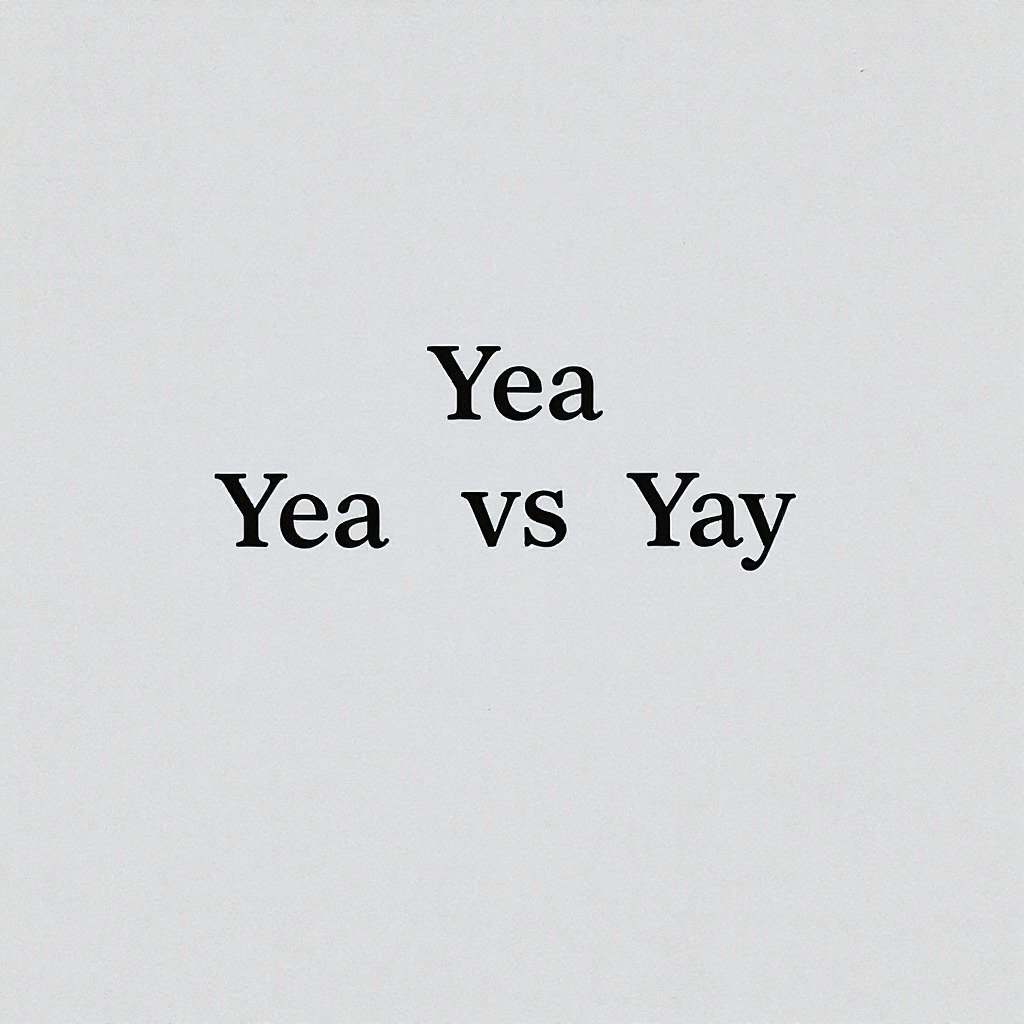"Yea" Vs "Yeah" Vs "Yay" - What’s the Difference?

English is full of little words that sound alike but mean totally different things. Three common ones are “yea,” “yeah,” and “yay.” At first glance, they look like spelling mistakes of the same word, but each has its own meaning and use.
Midoo AI will break them down for you today with examples and easy tricks, so you’ll never confuse them again.
What Does “Yea” Mean?
Yea (pronounced yay) is an old-fashioned or formal way of saying “yes.” You’ll often see it in historical writing, the Bible, or in official voting situations. It’s not common in everyday speech anymore, but it’s still correct English.
Examples of “Yea”:
- The Bible says: “Yea, though I walk through the valley of the shadow of death.”
- In the council meeting, members voted yea or nay.
- The senator cast her vote as a strong yea.
- “Shall we go forward?” “Yea, we must.”
- The motion passed with 12 yeas and 3 nays.
👉 Think of yea as the formal, old-school “yes.”
What Does “Yeah” Mean?
Yeah (pronounced yeh) is the casual, everyday way of saying “yes.” It’s friendly, informal, and very common in spoken English. You’ll hear it all the time in conversations, movies, and texts.
Examples of “Yeah”:
- “Want some coffee?” “Yeah, sure!”
- “Are you ready?” “Yeah, let’s go.”
- Yeah, I know what you mean.
- Yeah, it was a great game last night.
- “You coming?” “Yeah.”
👉 Think of yeah as the relaxed, modern “yes.”
What Does “Yay” Mean?
Yay (pronounced yay) is an expression of excitement, happiness, or celebration. It’s like saying “hooray” or “woo-hoo.” Unlike “yea” and “yeah,” it doesn’t mean “yes” — it’s about emotions.
Examples of “Yay”:
- We’re going on vacation — yay!
- Yay, my package finally arrived!
- I passed the exam — yay!
- “It’s your birthday?” “Yay, happy birthday!”
- Yay, the weekend is here!
👉 Think of yay as your go-to cheer word.
Quick Comparison
Here’s a fast way to remember them:
- Yea = formal “yes” (old-fashioned or voting).
- Yeah = casual “yes” (everyday conversation).
- Yay = expression of happiness (like “hooray”).
Comparison Table
| Word | Meaning | Use Case | Example |
|---|---|---|---|
| Yea | Formal/old “yes” | Votes, old texts | 10yeas and 2 nays |
| Yeah | Informal “yes” | Casual talk | “Yeah, I’ll help you.” |
| Yay | Cheer, excitement | Celebrations | “Yay, I won!” |
Memory Tips
- Yea = Yes in voting. Both have “a” in them.
- Yeah = Everyday yes. Looks casual, feels casual.
- Yay = Hooray! Both end with “y.”
Common Mistakes
❌ “Yay, I’ll come to the meeting.” ✔️ “Yeah, I’ll come to the meeting.”
❌ “They all shouted yeah when the bill passed.” ✔️ “They all shouted yea when the bill passed.”
❌ “Yea! It’s my birthday!” ✔️ “Yay! It’s my birthday!”
FAQs
Is “yea” still used today?
Yes, but mostly in formal voting (like government meetings) or in very old writing.
Is “yeah” proper English?
Yes. It’s informal but widely accepted in both speech and writing, especially texts, emails, and casual messages.
Can I use “yay” instead of “yeah”?
No. “Yay” shows excitement, not agreement.
Is “yea” pronounced the same as “yay”?
Yes, they’re both pronounced yay, but the meanings are totally different.
Which one should I use the most?
In daily life, use yeah for “yes,” and yay when you’re celebrating. Save yea for formal votes or if you want an old-fashioned style.
Final Thoughts
The difference is actually simple:
- Yea = formal yes.
- Yeah = casual yes.
- Yay = cheer of joy.
Next time you’re texting or writing, just think: Am I agreeing, voting, or celebrating? That quick question will help you pick the right word.